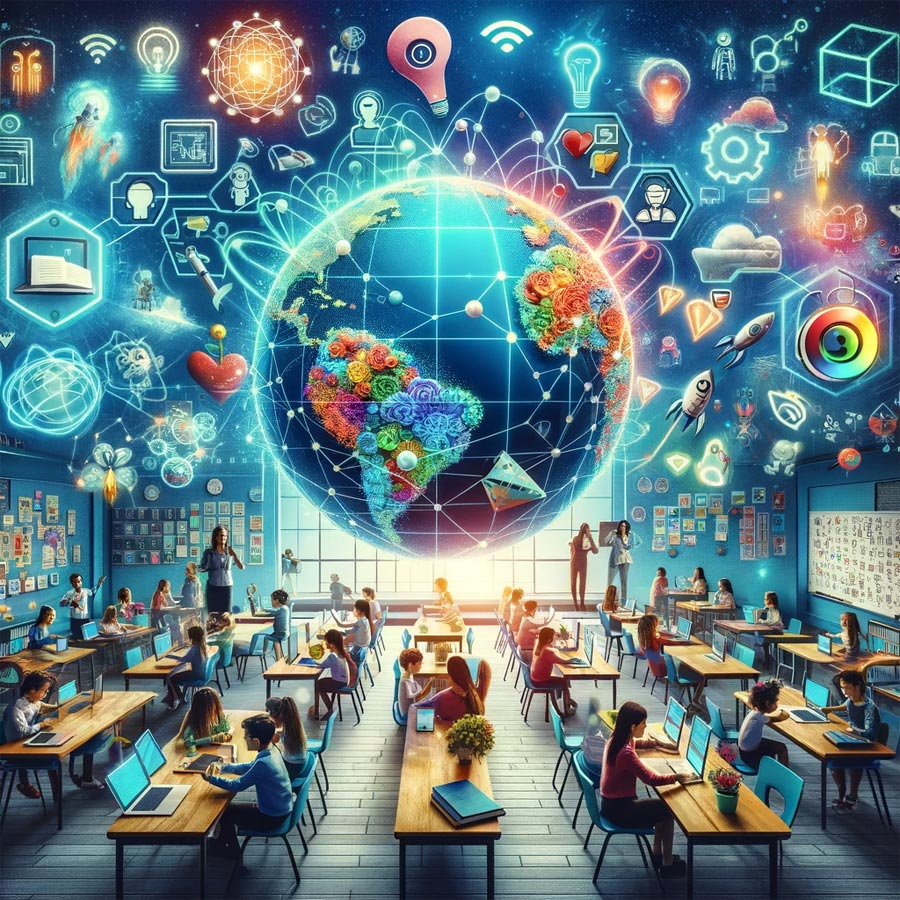
Current Trends and Innovations in Teaching: Shaping the Future of Education
The field of education is undergoing a transformative phase, marked by the integration of cutting-edge technologies and innovative pedagogical strategies. These trends and innovations are redefining teaching methodologies, enhancing student engagement, and improving learning outcomes.
This section highlights the latest educational technology developments (EdTech), collaborative learning models, and holistic educational practices, highlighting their impact on the teaching landscape.
Integration of Educational Technology
Digital Platforms and Learning Management Systems (LMS)
-
Overview: Digital platforms and LMS like Canvas, Moodle, and Google Classroom have become central to delivering content, facilitating communication, and tracking student progress.
-
Impact: These technologies enable a more organized and accessible learning environment, supporting in-person and remote education.
Adaptive Learning Technologies
-
Overview: Adaptive learning software provides personalized learning experiences by adjusting the content based on the learner's performance.
-
Impact: This technology supports individual learning paces, enhancing understanding and retention of knowledge.
Collaborative Learning Models
Flipped Classrooms
-
Overview: The flipped classroom model inverts traditional teaching methods by delivering instructional content outside the classroom and using class time for interactive activities.
-
Impact: This approach fosters deeper understanding through application and collaboration, improving academic performance.
Project-Based Learning (PBL)
-
Overview: PBL engages students in real-world challenges, requiring them to apply cross-disciplinary knowledge to solve complex problems.
-
Impact: Students develop critical thinking, collaboration, and communication skills, preparing them for future careers and societal contributions.
Holistic Educational Practices
Social-Emotional Learning (SEL)
-
Overview: SEL focuses on developing emotional intelligence, resilience, and interpersonal skills alongside academic competencies.
-
Impact: Incorporating SEL into the curriculum supports mental health, reduces behavioral problems, and improves academic outcomes.
Mindfulness and Wellness in Education
-
Overview: Mindfulness practices are integrated into classrooms to enhance focus, reduce stress, and support overall well-being.
-
Impact: These practices contribute to a positive learning environment, promoting better concentration and emotional regulation among students.
Gamification and Virtual Reality (VR)
-
Overview: Gamification applies game-design elements in educational settings, while VR offers immersive learning experiences.
-
Impact: Both strategies increase engagement, making learning more interactive and enjoyable. VR, in particular, provides unique experiential learning opportunities in safe, controlled environments.
Sustainability and Global Citizenship Education
-
Overview: Education for sustainability and global citizenship equips students with the awareness and skills to address global challenges like climate change and inequality.
-
Impact: These initiatives foster a sense of responsibility and empower students to contribute to a more sustainable and equitable world.
Conclusion
The current trends and innovations in teaching are steering education toward a future where learning is more personalized, interactive, and aligned with real-world needs. By embracing these developments, educators can enhance the learning experience, ensuring students are academically proficient and equipped with the skills necessary for lifelong success. As the educational landscape continues to evolve, staying informed and adaptable will be essential for educators aiming to provide the best possible outcomes for their students.
Education Future Education





